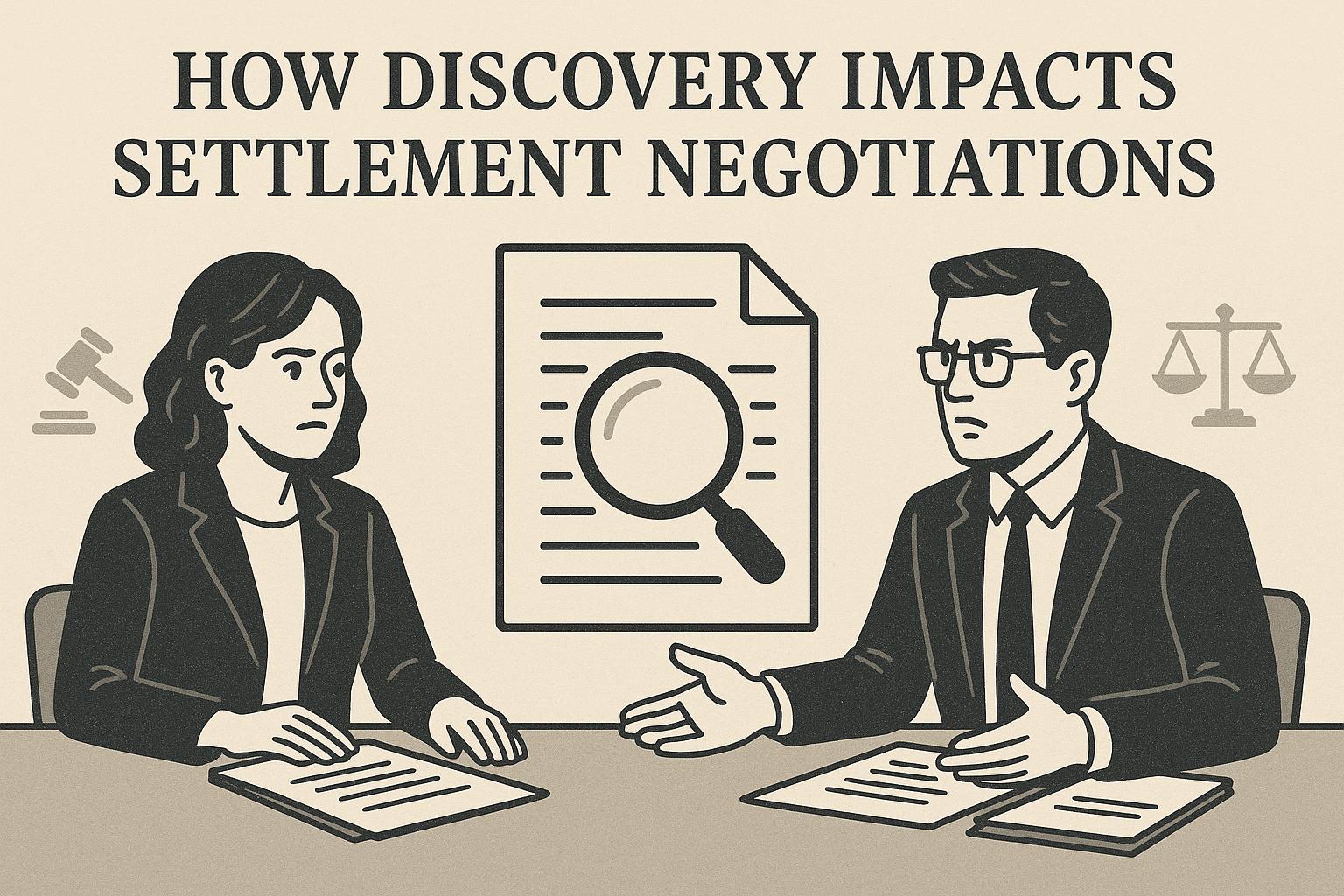The Role of Discovery in Settlement Negotiations
In the legal realm, the discovery process is a critical phase in which both parties exchange information, potentially impacting the course and outcome of settlement negotiations. Understanding the intricacies of discovery can provide valuable insights into how it shapes the dynamics of a legal dispute.
Understanding Discovery
Discovery is a pre-trial procedure used to gather evidence and information pertinent to a case. This process allows each party to understand the strengths and weaknesses of their opponent’s case, ultimately influencing the strategic decisions made during settlement negotiations. Key components of discovery include depositions, interrogatories, requests for production of documents, and requests for admissions.
The Dynamics of Information Exchange
The discovery process encourages transparency and ensures that both parties have access to the necessary information to evaluate the claims and defenses involved in a lawsuit. This phase is a cornerstone of the adversarial legal system, providing a structured method for gathering information and aligning the parties on the factual underpinnings of the dispute. Knowing the facts beforehand can aid in analyzing potential outcomes and deciding whether a settlement is beneficial.
The Impact on Negotiations
The information gained through discovery can significantly affect settlement negotiations in various ways:
Clarification of Case Facts
Discovery allows both parties to ascertain critical facts, which can lead to a more accurate assessment of the case. As a result, parties may adjust their expectations and develop more realistic settlement offers, often expediting the negotiation process. The clarity gained from discovery reduces uncertainties, allowing parties to form settlement strategies based on concrete evidence rather than assumptions.
Assessment of Litigation Risks
Thorough discovery can reveal the likelihood of success or failure in court. The insights obtained can drastically alter a party’s stance on litigation versus settlement. Knowing the risk of an adverse judgment, as well as the potential for legal expenses, may motivate both parties to find a resolution out of court. Factors that influence this decision include the quality of evidence, legal precedents, and the interpretation of applicable laws.
Leverage in Negotiations
The discovery process can uncover evidence that one party can use as leverage during settlement discussions. For instance, a compelling piece of evidence might persuade the opposing party to settle rather than risk an adverse judgment at trial. Conversely, the absence of strong evidence could lead to a more aggressive negotiation posture. The strategic use of evidence during negotiations can sway the balance of power, compelling one side to reconsider its position or offer a more favorable settlement.
Challenges in the Discovery Process
Despite its importance, the discovery process can present several challenges:
Cost Considerations
Discovery can be a costly endeavor, often involving expenses related to document production, expert testimony, and other resources. These costs can influence a party’s decision to settle, especially if the financial burden of trial preparation becomes prohibitive. Legal teams must weigh the benefits of continued discovery against the rising expenses, leading some to opt for settlement purely to cap further costs.
Management of Time
Discovery can also be time-consuming, potentially delaying negotiations. Strategic use of time may be necessary to ensure that parties remain open to settlement discussions without feeling pressured by deadlines. Deadlines may force parties to rush decisions, leading to settlements that do not fully reflect the potential outcomes of continued litigation.
Confidentiality Concerns
Information disclosed during discovery can become public, which may be undesirable for certain parties. Concerns about confidentiality and reputational impact can prompt parties to settle to avoid the disclosure of sensitive information. For businesses, protecting trade secrets or sensitive financial information becomes a priority, influencing the decision to pursue a confidential settlement.
The Strategic Value of Discovery
Aside from the challenges, discovery holds significant strategic advantages. By gathering and analyzing information, attorneys can hone their arguments and defenses, enhancing their preparedness for trial if negotiations fail. In addition, having a clear understanding of an opponent’s case can foster creative settlement solutions, which might not be evident without such detailed insight.
Improving Negotiation Outcomes
In complex legal disputes, the discovery process often leads to improved negotiation outcomes. With greater knowledge of the facts and an understanding of the adversary’s position, settlement negotiations can be adapted to the nuances of the information uncovered. By focusing on the substantive aspects of a case, parties can negotiate with reduced misconceptions, leading to settlements that accurately reflect their interests and risk assessments.
Conclusion
Discovery plays a pivotal role in shaping settlement negotiations by providing critical insights into the evidence and legal strategies of each party. While it presents certain challenges, the benefits of a well-conducted discovery process can lead to more informed and effective negotiations, ultimately facilitating a fair and equitable resolution. Through discovery, parties are equipped to engage in negotiations that reflect an informed position rather than speculation, thus promoting a legal environment where settlements are not just tactical decisions but are based on a substantial grasp of the potential litigation journey.
